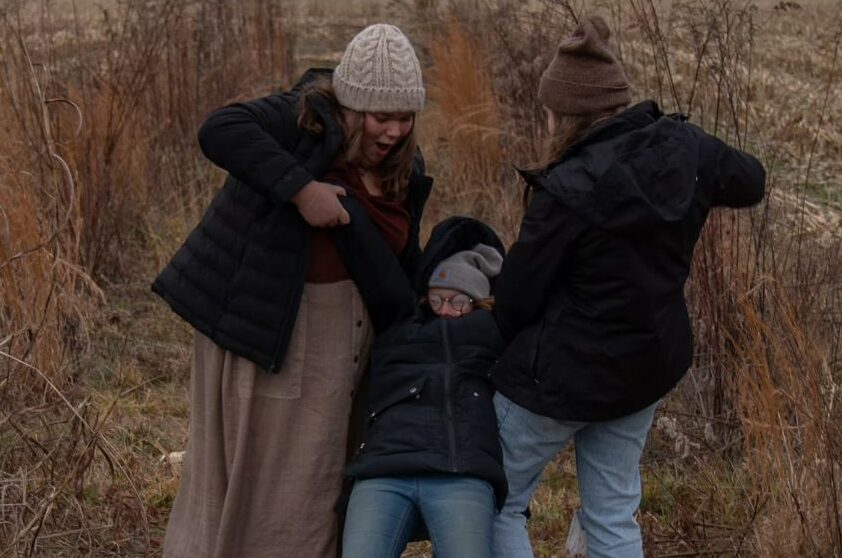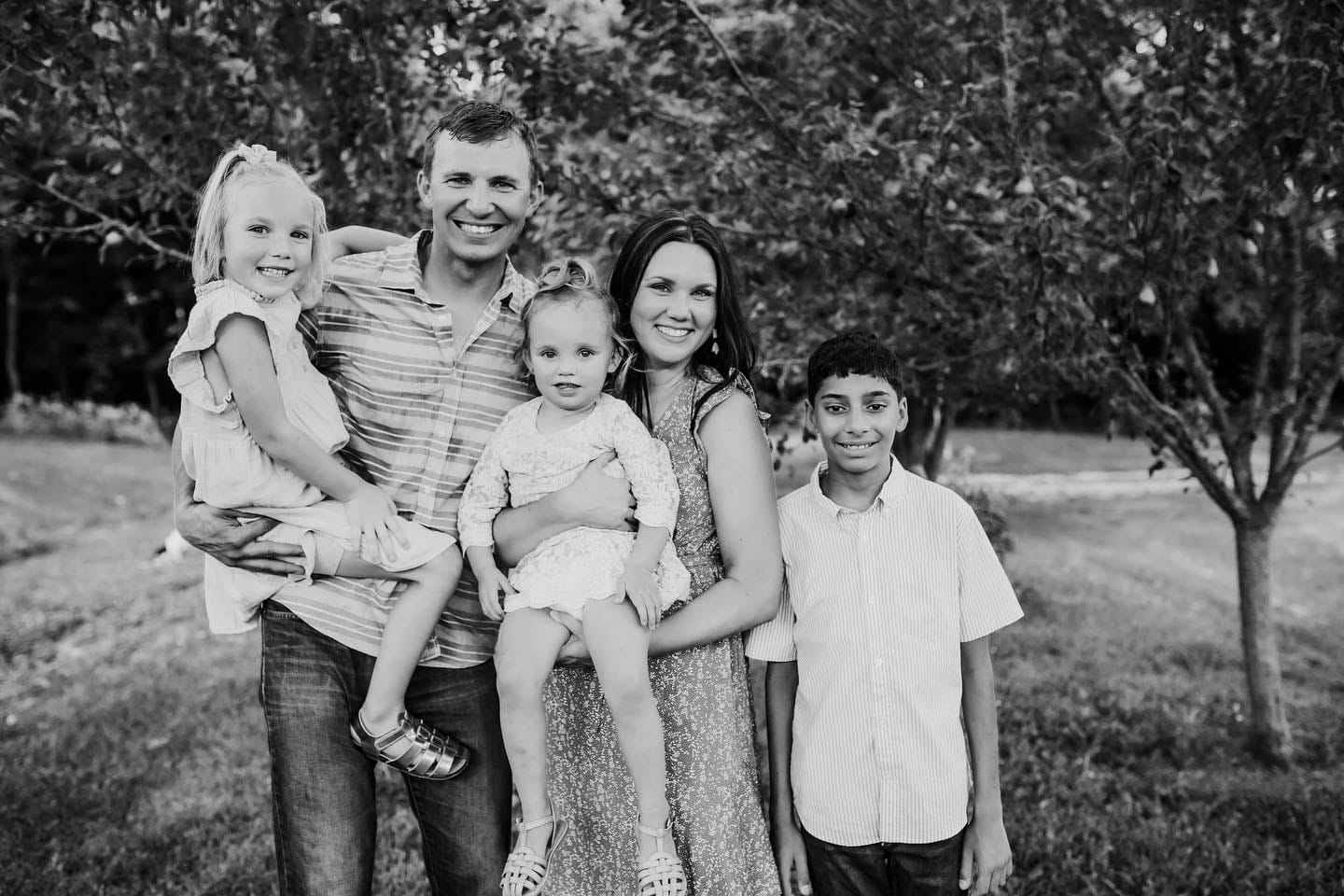The Lingering Effects of Trauma
When I was a youth, I experienced abuse. The details of the abuse aren’t relevant to the purpose of this article, all you need to know is that I was 16, and the abuse lasted off and on for about a year and a half. I am now 30, I have three beautiful children, a kind and gentle husband who has loved me since we were 19. I have a job that I love, a home filled with love and laughter (and tantrums and messes), and the consistent love and support of a community of friends I get to walk through daily life with. Truly, my life is beautiful. It is more than I could’ve ever hope or dreamed for, and exactly the life I prayed would one day be mine. And still, the lasting effects of trauma from the abuse that I experienced creep in from time to time.
My family loves football, it’s a regular part of our calendar. And though I don’t care much for the sport, I love the family rhythms we’ve created around it. The food, the friends, the lazy Saturdays spent watching my children argue over which team to cheer for based on their mascot or jersey color… I spend most Saturdays wandering between the game, the laundry, rocking the baby, and carving out a few moments of silence while everyone is happily occupied. Occasionally, though, when I walk upstairs to change the baby’s diaper or grab something I need, and cheers erupt downstairs, my body panics. The world around me slowly disappears and I become, once again, a terrified child wondering when the screaming will stop… What I know is the cheerful thrill of my partner and kids enjoying the game is distorted, and the muffled screams sound all too familiar to the darkest parts of my past, and I am transported back in time. My brain knows I am safe in my own home, but my body is not so sure.
In those moments, as my heart races and my hands go numb and the nausea rises in my throat, I know how to cope. I calmly pass the baby to my husband, tell him I need a moment, and can step away to allow my body the time and space to calm down. Sometimes it takes ten minutes, sometimes it’s an hour, and more often than I’d like to admit, it takes me a full day or two before I feel completely back to normal. But even as an adult, with years of healing under my belt, with a family who cares for me dearly, with every opportunity for success, my trauma still sneaks its way into my life.
Did you know that 100% of children in foster care have experienced some form of trauma? Roughly 70% of children entering foster care enter because they’ve experienced neglect, and most of the other 30% enter due to abuse of some sort. Regardless of the situation they’re coming from, when a child is placed into the foster care system they experience the trauma of separation from their first family. Every single child entering the foster care system does so with trauma to varying degrees. I am an adult. I have done years of work, have the kindness and patience of a partner who knows and loves me, and still I struggle with the residual effects of the trauma I experienced in my youth. I want you to take a moment and imagine what it must feel like for a child to experience these same symptoms of trauma. The chaos that takes over their brains and bodies must be so overwhelming… so exhausting. Now imagine that these same children are removed from their homes often with little more than a trash bag, placed into the home of a stranger, given a new set of rules to follow, new “parents” and siblings, a new school, a new doctor… new everything. Even the most stable of adults would likely struggle with such drastic changes.
Trauma informed care is so abundantly important for kids entering the foster care system. They need to be met with kindness, compassion, patience, and Trust Based Relational Intervention. And as a caretaker, you have to remember that even if their minds KNOW that they are safe, their bodies might not be so sure.
So what is Trauma? And what does it do to a developing mind?
Trauma is the challenging emotional consequences that living through a distressing event can have for an individual, and it can have significant and lasting effects on a child’s brain development and overall well-being. For example:
- Altered Brain Structure: Trauma can lead to changes in the brain’s structure, particularly in regions associated with emotional regulation, memory processing, and the stress response system. The hippocampus, which is crucial for memory and learning, can be impacted, potentially leading to memory difficulties and difficulty processing traumatic experiences.
- Dysregulated Stress Response: Trauma can disrupt the normal stress response system, leading to heightened levels of stress hormones like cortisol. This can result in increased reactivity to stressors, difficulty in regulating emotions, and an increased risk of developing anxiety and mood disorders.
- Impaired Emotional Regulation: Trauma can affect the development of the prefrontal cortex, which plays a key role in regulating emotions and making decisions. Children who have experienced trauma may have difficulty regulating their emotions, leading to impulsivity, aggression, or emotional numbness.
- Attachment and Relationship Challenges: Trauma can impact a child’s ability to form secure attachments and trust others. Children who have experienced trauma may struggle with building and maintaining healthy relationships, which can affect their social and emotional development.
- Cognitive and Academic Impairments: Trauma can interfere with a child’s cognitive development, leading to difficulties with concentration, problem-solving, and academic performance. These cognitive impairments can have long-term consequences for a child’s educational and vocational outcomes.
That’s not super encouraging to read.
I know, but hear me out. While it can be easy to read these five lasting effects and get discouraged, my goal here is to encourage and empower you. With more knowledge of the developing brain and the effects of trauma, we can be better equipped to care for children who have experienced trauma. The good news is that a developing brain is malleable, and just as trauma can lead to changes in the brain structure, healing is also totally possible. For a child, healing happens in safe, nurturing relationships. It is possible to diminish the long lasting effects, to walk with a child as their brains repair, their bodies learn that they are safe, and their hearts begin to trust. All of this, though, requires caretakers who are not only well versed in trauma informed care, but also willing to do the often difficult and exhausting (and incredibly rewarding!) work of caring for children who have experienced trauma.
Where do I start?
There is so much wonderful information easily accessible to us about trauma, the brain, and parenting. Here’s a list of books I recommend as a great place to start:
- The Body Keeps the Score
- Parenting From the Inside Out
- The Whole Brain Child
- Trauma: The invisible Epidemic
- What Happened to you
- The Boy who was Raised as a Dog
- The Connected Child
- The Connected Parent
Worthwhile follows on instagram:
The work of caring for children who have experienced trauma can be daunting, but at the end of the day, they deserve to be met with the care they need to heal, to repair, and to move forward in their lives. What a gift it is to get to walk alongside them and witness big and small victories along the way.
Written by Hannah Scott, TAP Team Member



